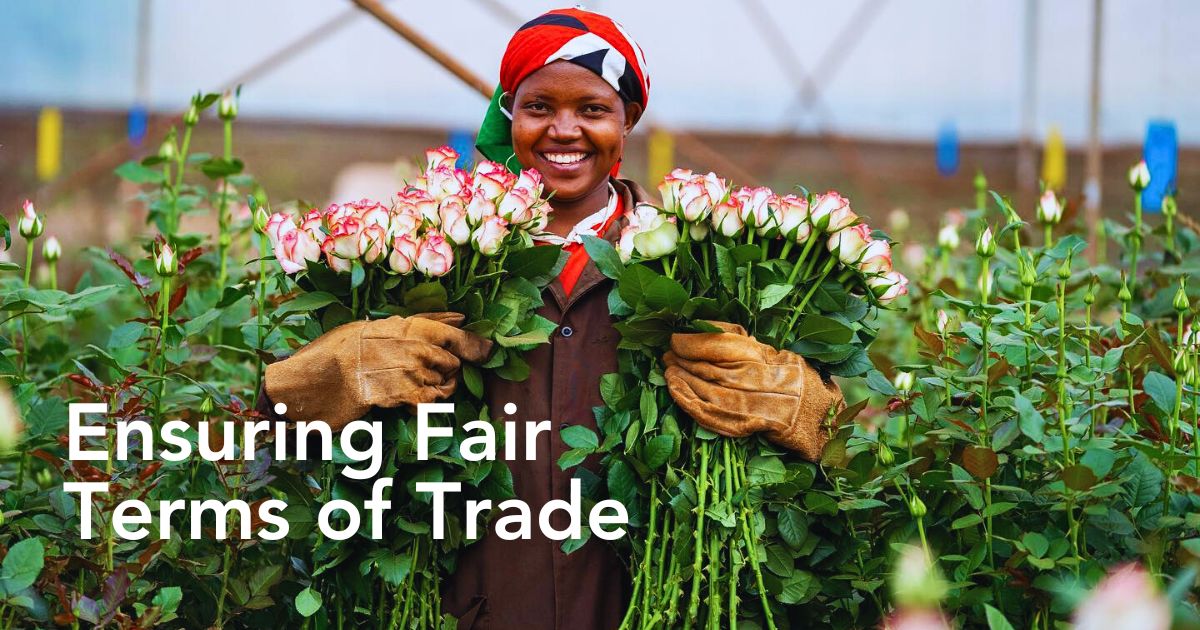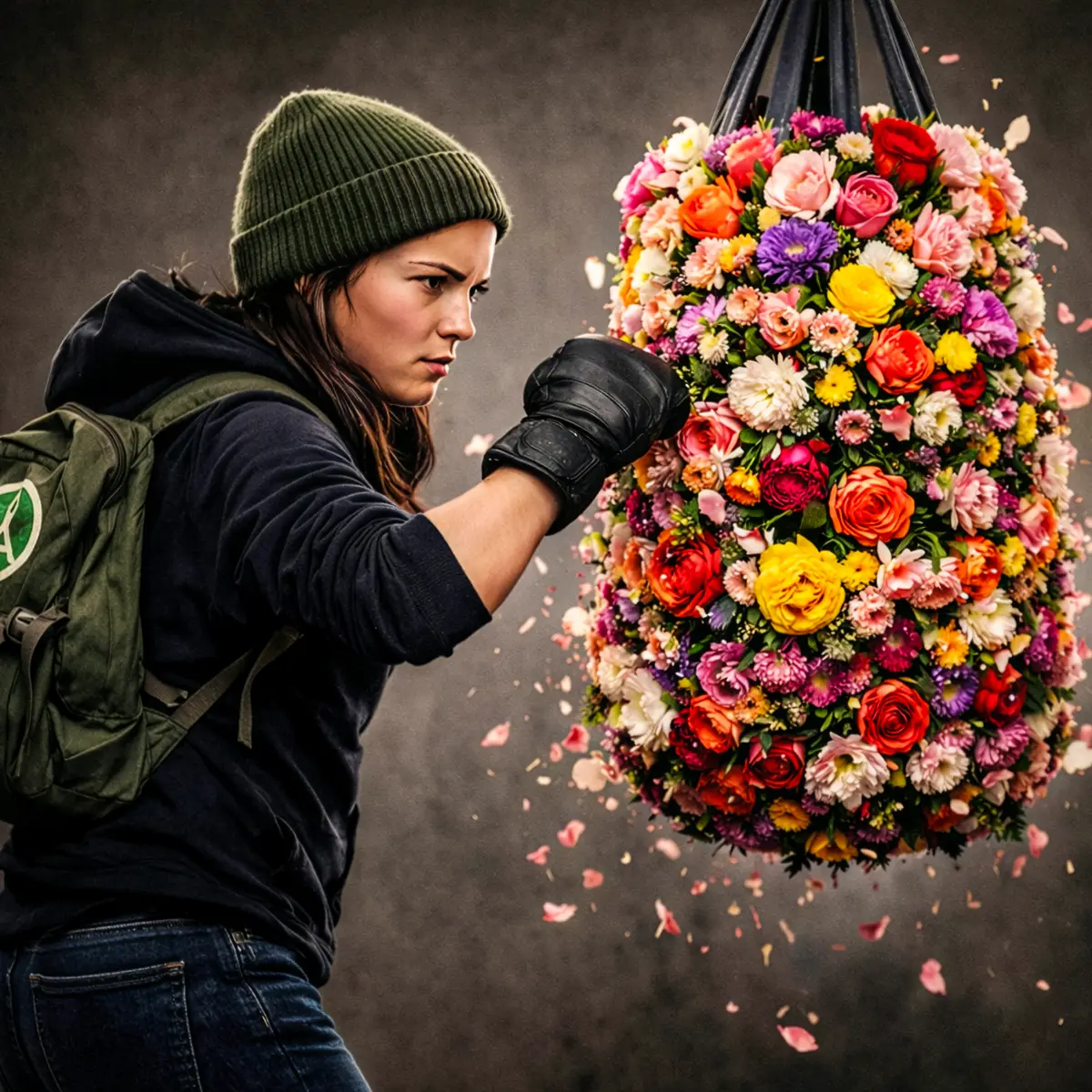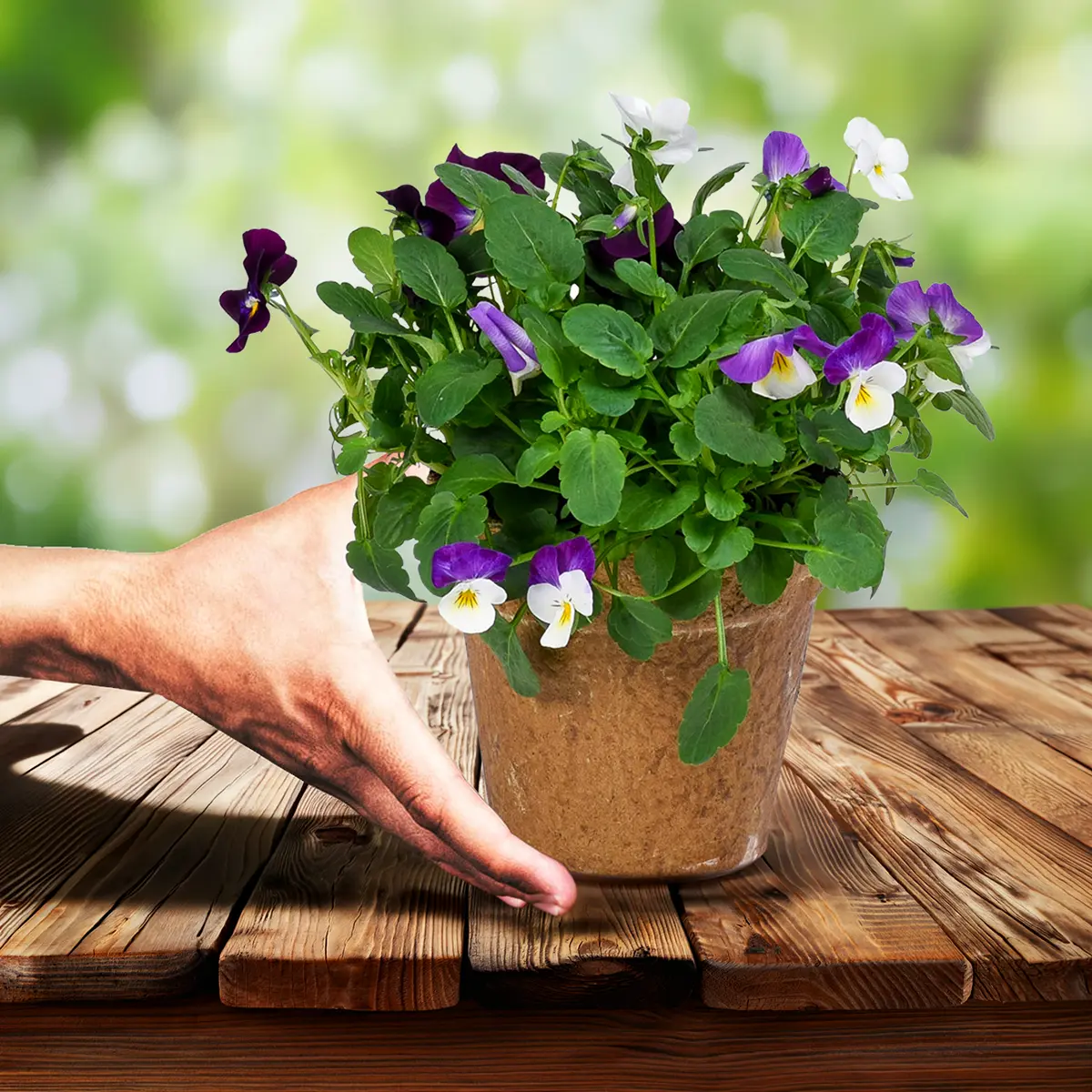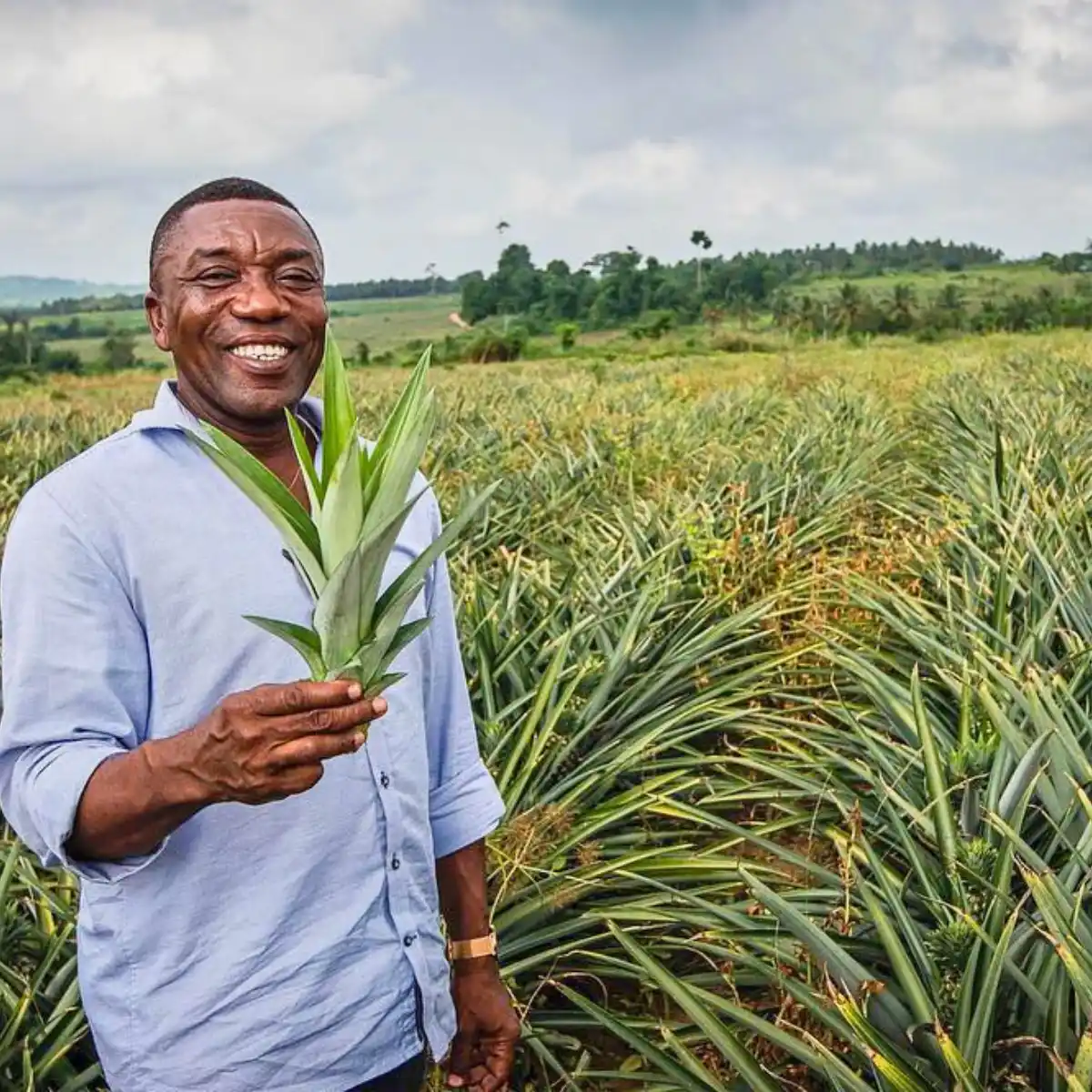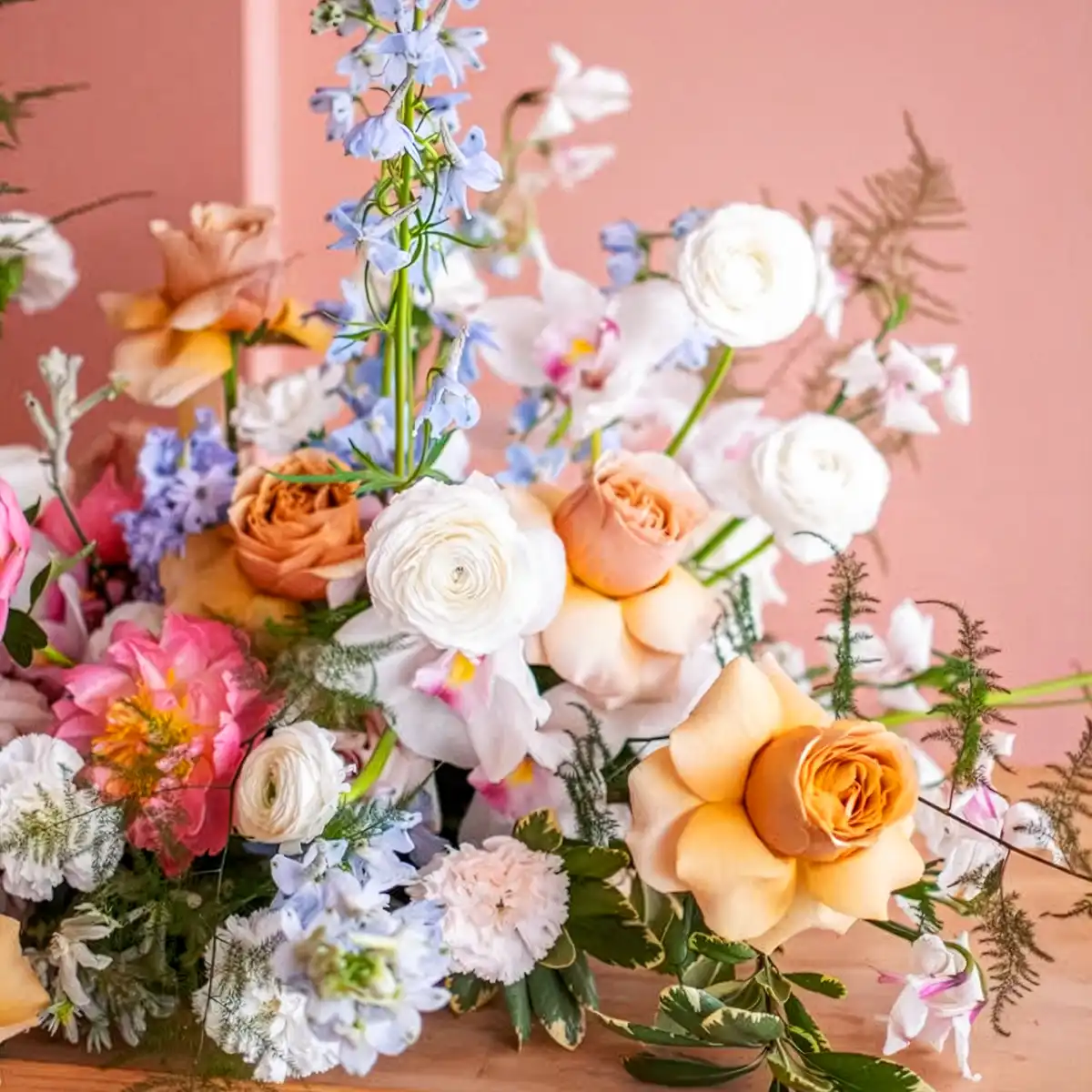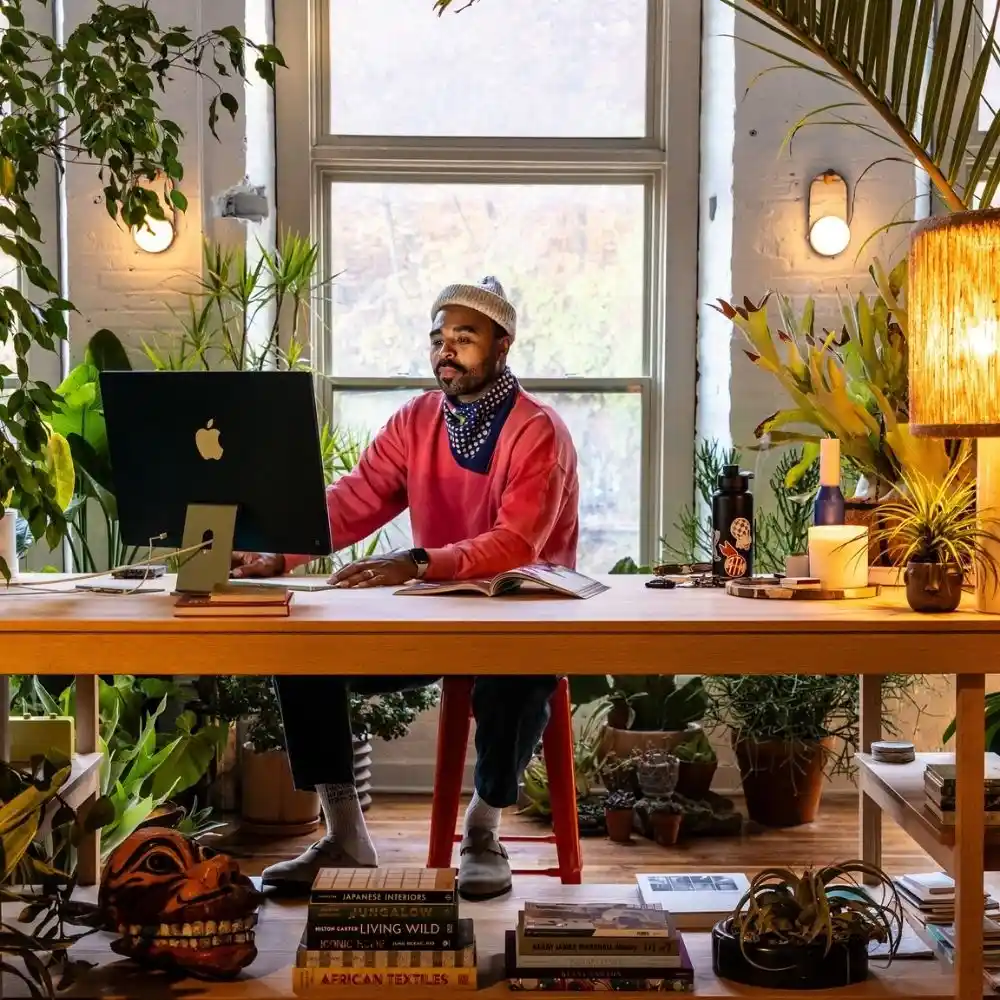While the flower industry—a worldwide network of floral businesses is, on one hand, more known for its beauty and delight, it, on the other hand, grapples with weighty challenges. At the back of the exquisite flowers, floral designs, and bouquets that adorn people’s homes and celebrations, there lies an industry often fraught with environmental concerns, challenging working conditions and systemic inequalities, and logistical and market challenges.
What Is Fairtrade All About?
Still, Fairtrade is doing a lot to address these issues. Essentially, Fairtrade is all about ensuring better prices, safe working conditions, local and international sustainability, and fair terms of trade for flower growers and workers. It also addresses conventional trade's injustices by supporting smallholders to secure better rates. The certification is changing the global floral landscape, offering a sustainable approach prioritizing both people and the planet while maintaining the industry's sustainability and economic viability.
Current State of Affairs in the Flower Industry
Over recent decades, the flower industry has undergone a significant makeover. Southern Hemisphere countries like Colombia, Ecuador, Kenya, Ethiopia, and Sri Lanka, alongside several others, have significantly upped their flower production game. This important transformation has largely been driven by factors like favorable climatic conditions that allow for natural cultivation without the need for artificially heated greenhouses, the availability of a skilled workforce, and the ever-growing demand for flowers all over the world.
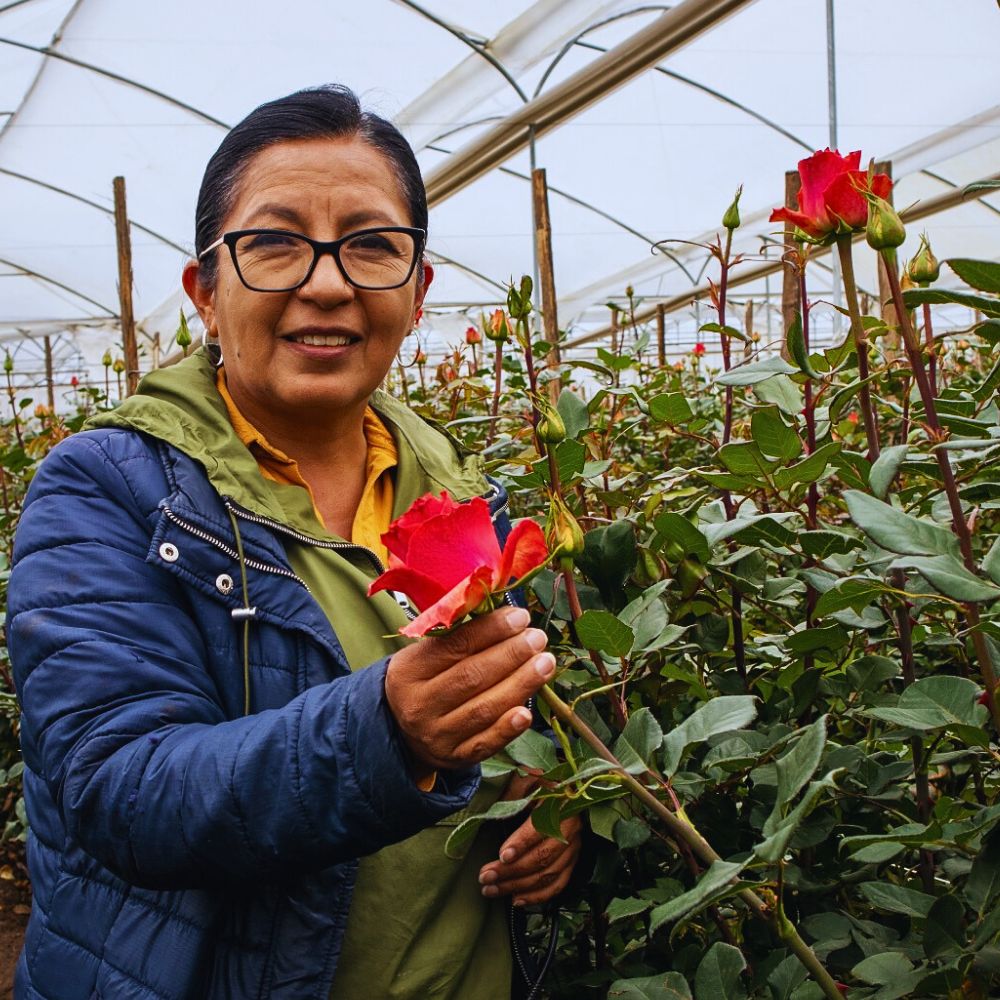
However, this has also created substantial challenges, more so for workers. In many flower-producing regions, flower farm workers are known to work with meager wages, sometimes below the poverty line. This leaves them struggling to meet their basic needs. The situation is particularly acute in some countries where there is no legal minimum wage, or where the government-set minimum wage is lower than the World Bank poverty line. Elsewhere, some workers even face extended working hours with little compensation for the overtime hours.

This does not discount the fact that globally, millions of people are employed across the flower industry’s different value chains, growing, harvesting, packing, and caring for the flowers alone, indicating the massive scale of employment in this sector. But then again, many of these workers face employment insecurity, with many remaining on temporary or casual contracts, while others are retained on seasonal contracts, which have negative consequences: they hardly get insurance, holidays, or even maternity leave.
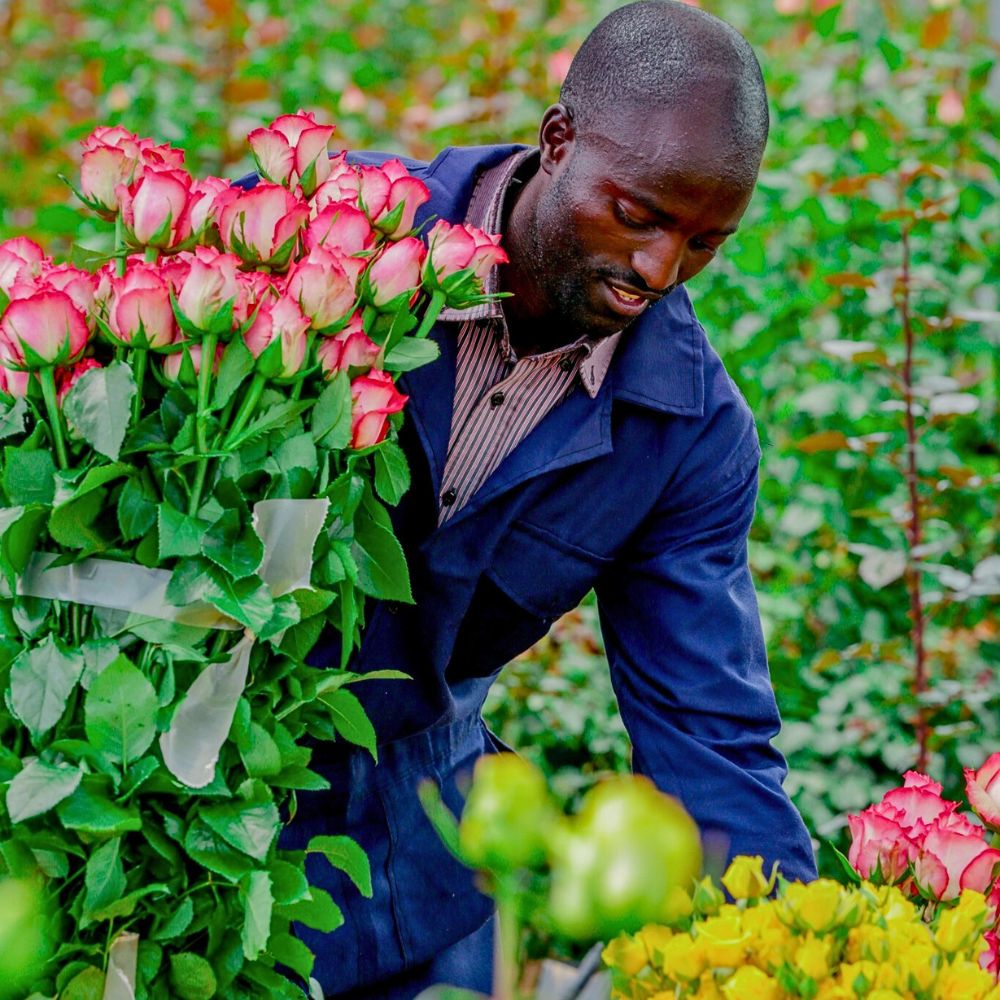
Environmental Challenges in Flower Production
The environmental impact of the flower industry is substantial and multi-dimensional. Flower cultivation requires enormous amounts of water, with some research indicating that a single-stem rose requires approximately 1.9 gallons of water to produce. This is particularly problematic in water-scarce regions, where excessive water extraction for flower farming can lower water tables and affect local communities.
The industry's traditional reliance on pesticides and chemical treatments also poses additional environmental risks, on top of the well-being risks. These chemicals can contaminate water sources, harm wildlife, and pose health risks to workers and surrounding communities. A lack of stringent regulations in many flower-growing and exporting regions has led to the overuse of these harmful substances.
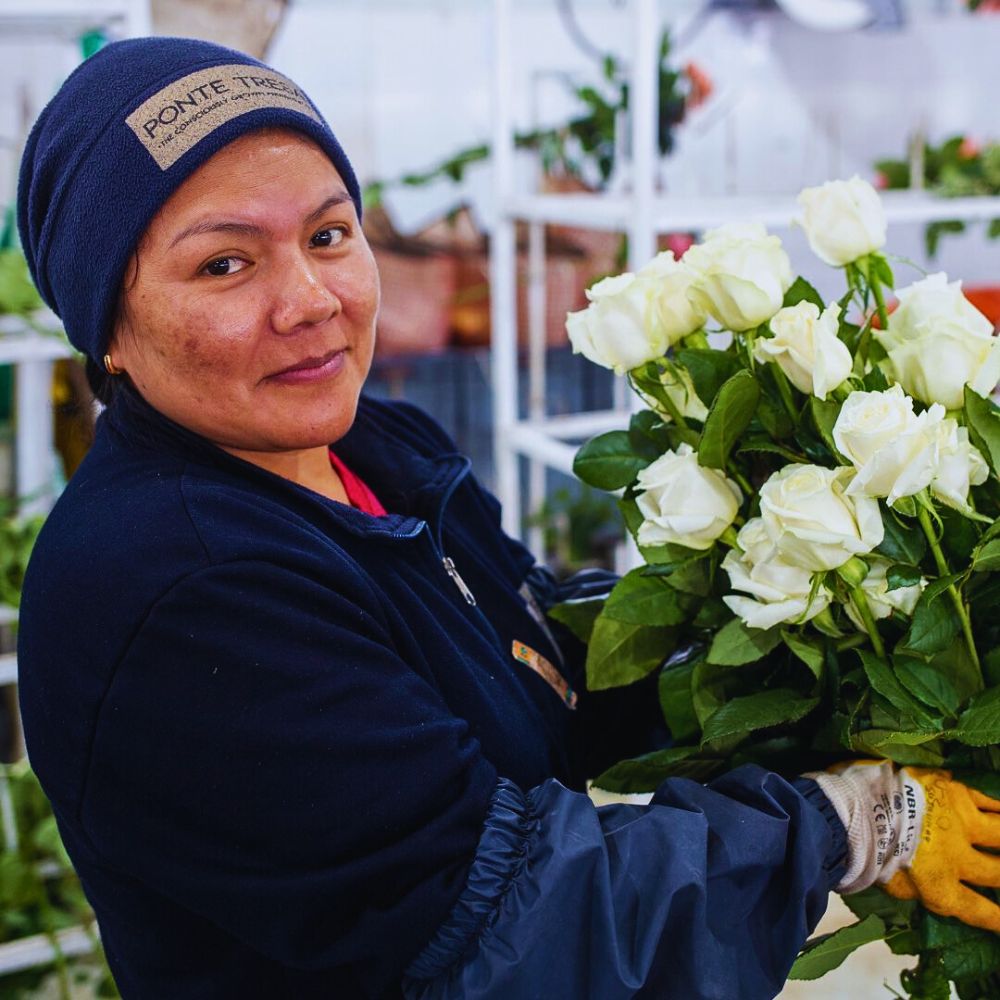
Furthermore, the industry's carbon footprint has often been criticized for being substantial, mainly due to the cultivation and production processes involved, and the transportation of flowers across continents. With flowers grown in countries like Kenya, Ecuador, and Colombia being shipped to markets in Europe and North America, many tend to believe that the environmental cost is extensive.
How Fairtrade Transforms the Flower Industry
Fairtrade certification is one of those interventions that address these systemic issues through a comprehensive approach encompassing economic, social, and environmental standards. Its impact is both measurable and transformational for the flower farms, their staff, and the communities involved in and around floral production.
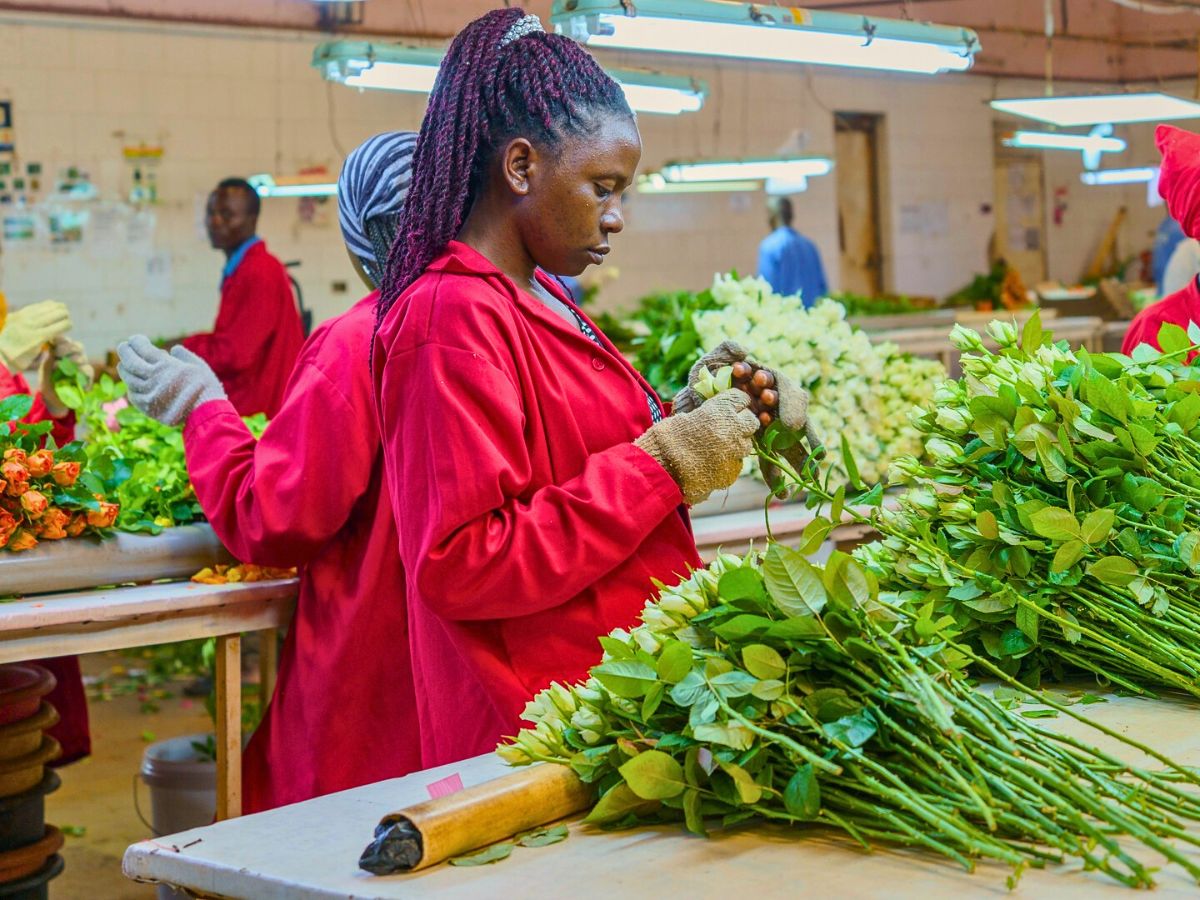
Fairtrade Flowers, and What Is Different About Them
Fairtrade flowers are those grown on farms that adhere to strict social, economic, and environmental standards put in place, ensuring fair treatment for workers and promoting sustainable practices. These flower farms receive a Fairtrade Premium on top of the agreed price, which is used to fund community development projects and improve workers' lives. At least 75,000 people globally are involved in growing, harvesting, packing, and caring for these Fairtrade flowers. €7.3 million in Fairtrade Premium was earned by certified flower producers in 2023 alone, where 5.7 billion certified stems were produced.
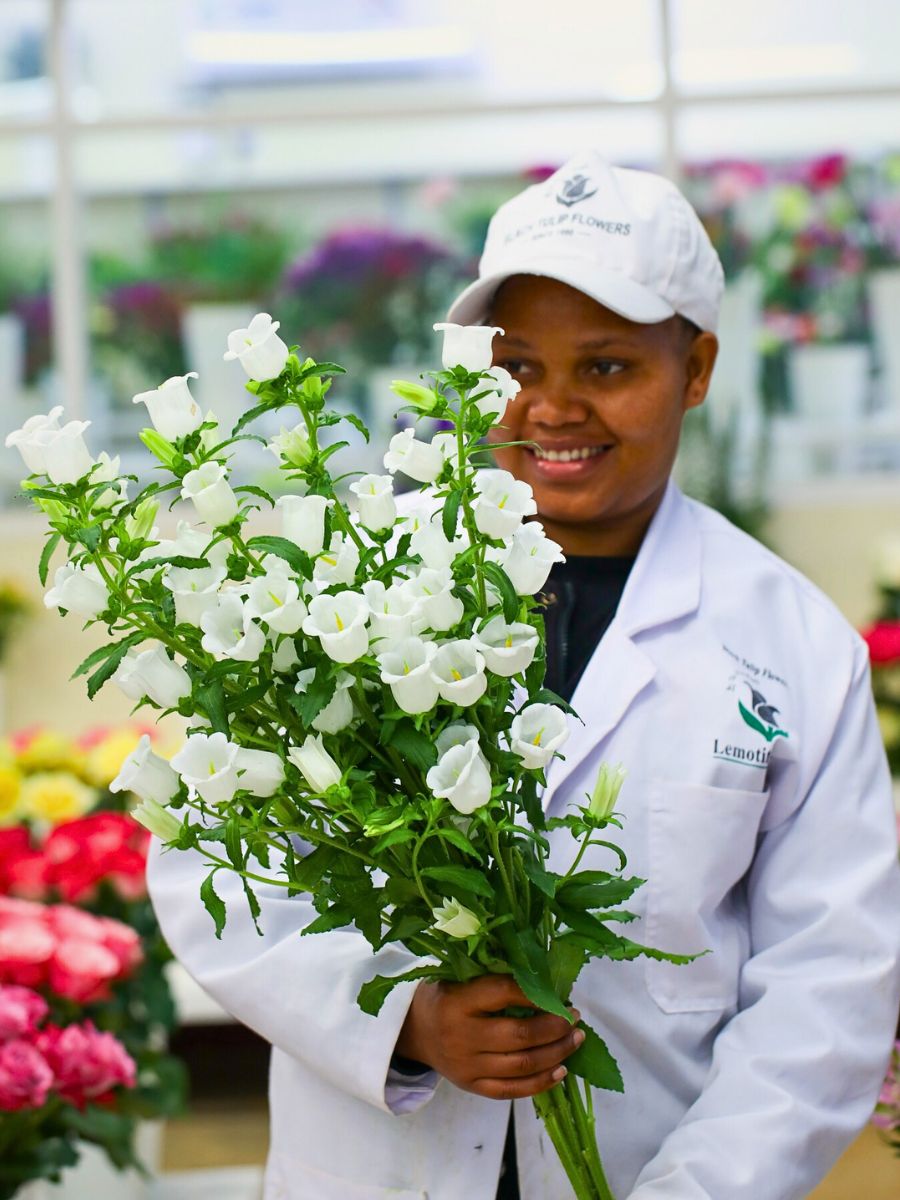
Economic Empowerment Through Fair Compensation
As noted, one of Fairtrade's most significant contributions is the Fairtrade Premium system, which provides flower farms with an additional 10% for every stem sold. This premium, one of the highest among all Fairtrade products, compensates for the absence of a Fairtrade Minimum Price in the flower sector. Recent research reveals the real impact of this system. According to the research, Kenyan Fairtrade flower workers receive, on average, an additional €107 per worker annually in economic benefits through the Fairtrade Premium. When loans are included in the analysis, this figure rises to €464 per person annually.
This support is particularly crucial given that, every so often, flower workers' average annual salaries fall far below the living wage benchmark. The wage differential between Fairtrade and non-Fairtrade farms is conspicuous. A huge majority of workers on East African Fairtrade-certified farms report higher wages compared to their counterparts on non-certified farms: more than twice as many Fairtrade flower workers fall into higher wage brackets compared to those on non-Fairtrade operations.
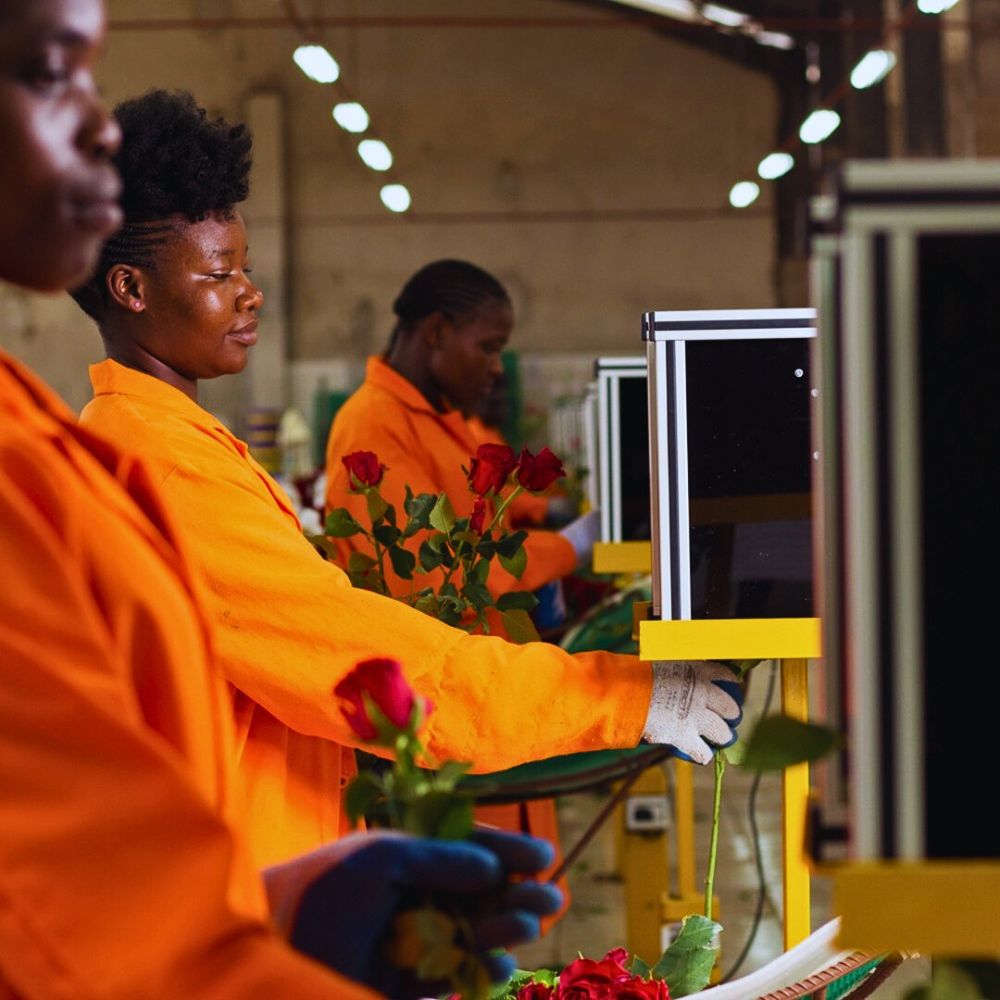
Social Impact and Community Development
Essentially, the Fairtrade Premium system enables workers to make democratic decisions about investments, including those that benefit the community. Some 43% of workers access education benefits, with bursaries prioritized for orphans and vulnerable children. These educational opportunities have life-changing effects, as confirmed by worker testimonials, highlighting how these facilities enable children to attend quality schools from elementary through higher education.
Healthcare and housing are other significant areas of impact. 35% of workers benefit from housing item loans, including clean energy stoves and gas cylinders, with women workers being the primary beneficiaries. Additionally, 10% of workers have access to plot loans for land acquisition. The social infrastructure improvements also have an impact that goes beyond individual benefits. In 2020, flower farms in Africa received €7.25 million in Fairtrade Premium, with the majority of these funds used to provide services for workers and their families, community infrastructure development, and worker enablement programs.
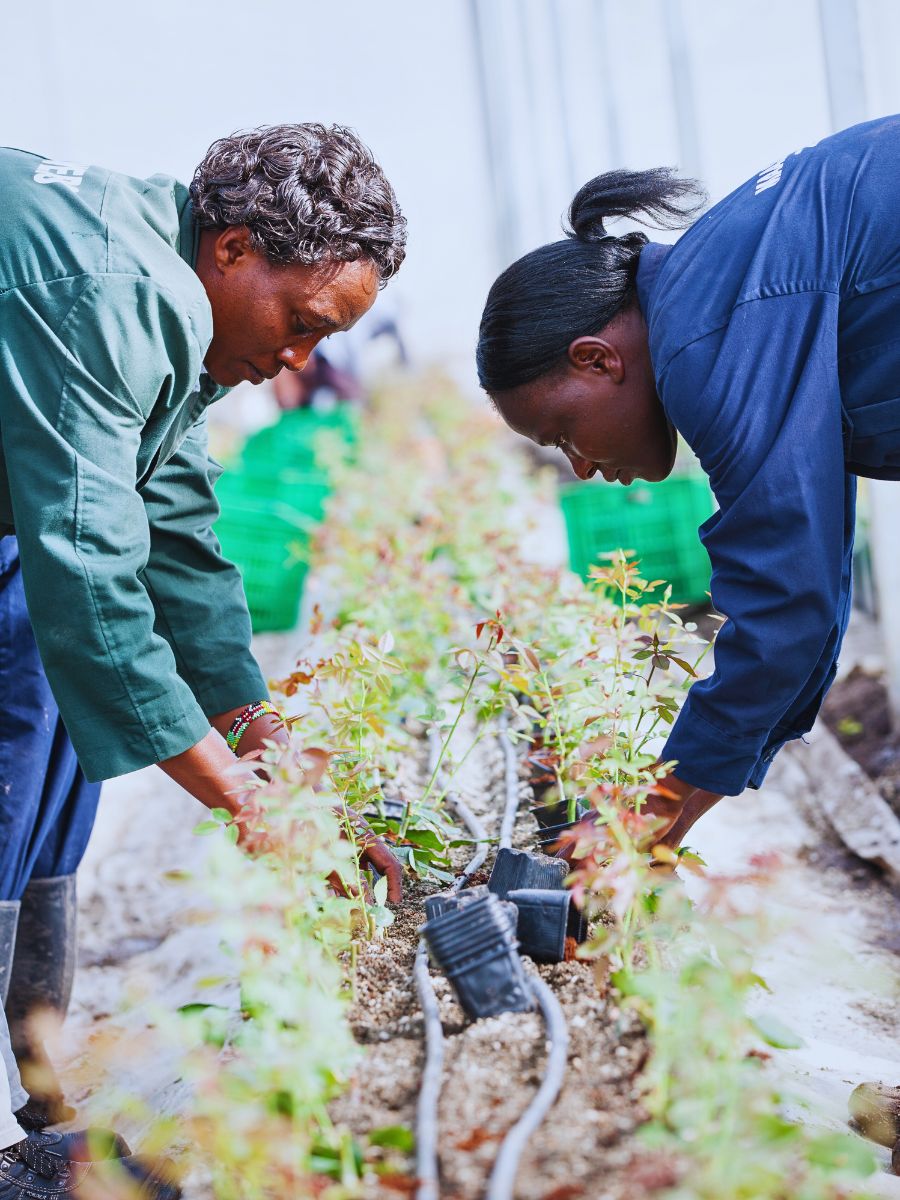
According to the 2025 Global Report, in 2023 alone, 63% of the Fairtrade Premium was allocated to social investments for flower farmers, workers, and their families, covering essentials such as education and child protection, financial benefits, health, housing, workers' rights committees, and other social services. 22% of the premium supported social investments in the broader community, 12% was invested in producer organization development, including non-agricultural training like business practices and IT skills, committee costs (including the Fairtrade Premium committee and producer organization board), and 3% was directed toward environmental services, such as biodiversity, reforestation, and other environmental initiatives for communities.
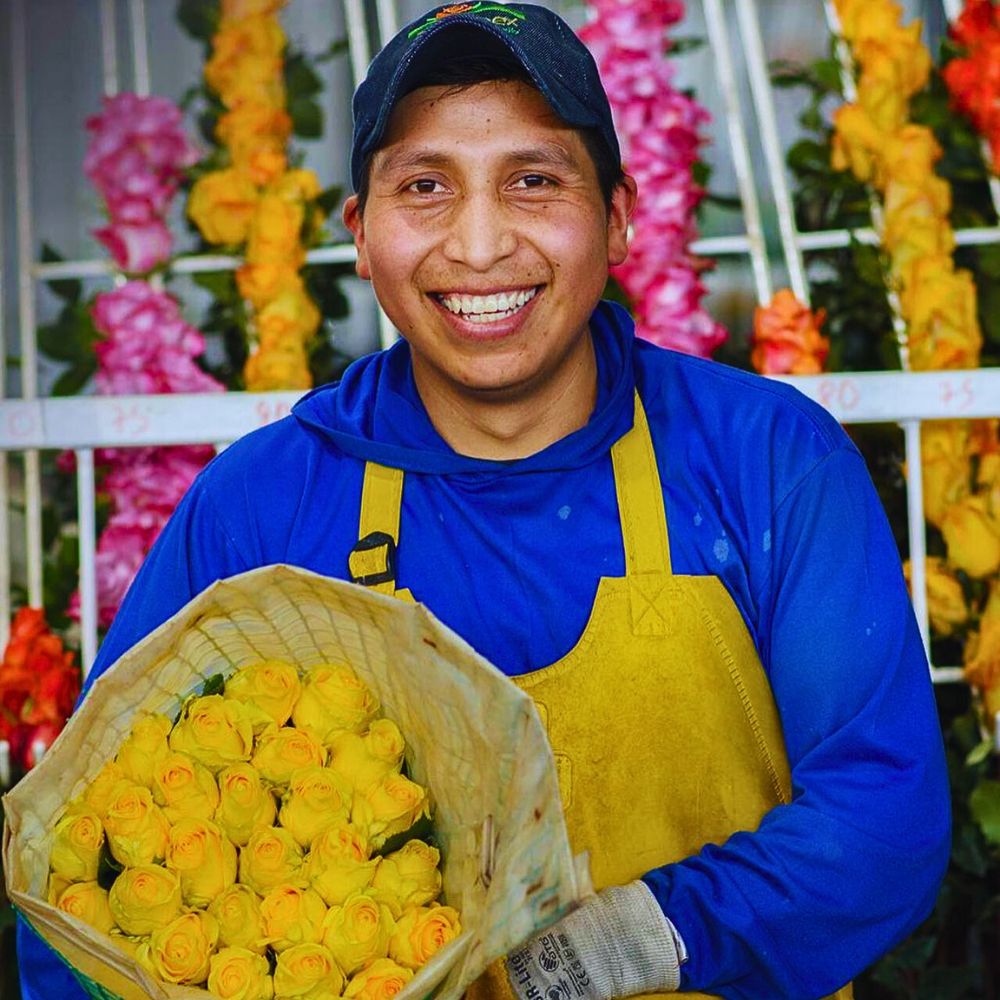
Gender Equality and Women's Empowerment
Fairtrade places particular emphasis on addressing gender inequalities prevalent in the flower industry. Women, for instance, constitute 75% of flower workers in Kenya and 65% in Colombia, yet in most cases, they often face lower wages, job insecurity, and sometimes workplace harassment. Fairtrade-certified farms must implement comprehensive gender policies, including zero tolerance for sexually intimidating, abusive, or exploitative behavior and prohibition of pregnancy testing during recruitment.
The certification, equally, requires equal representation of men and women on all farm committees and the establishment of gender committees to promote equality and challenge negative stereotypes. The Women's School of Leadership for flower workers in Ethiopia, for instance, has been extended to cover Fairtrade flower farms in the country, benefiting more than 11,000 women flower workers across at least six flower farms. These initiatives have resulted in measurable improvements, with Fairtrade workers being more confident in pursuing their rights and engaging more actively in workers' rights issues.
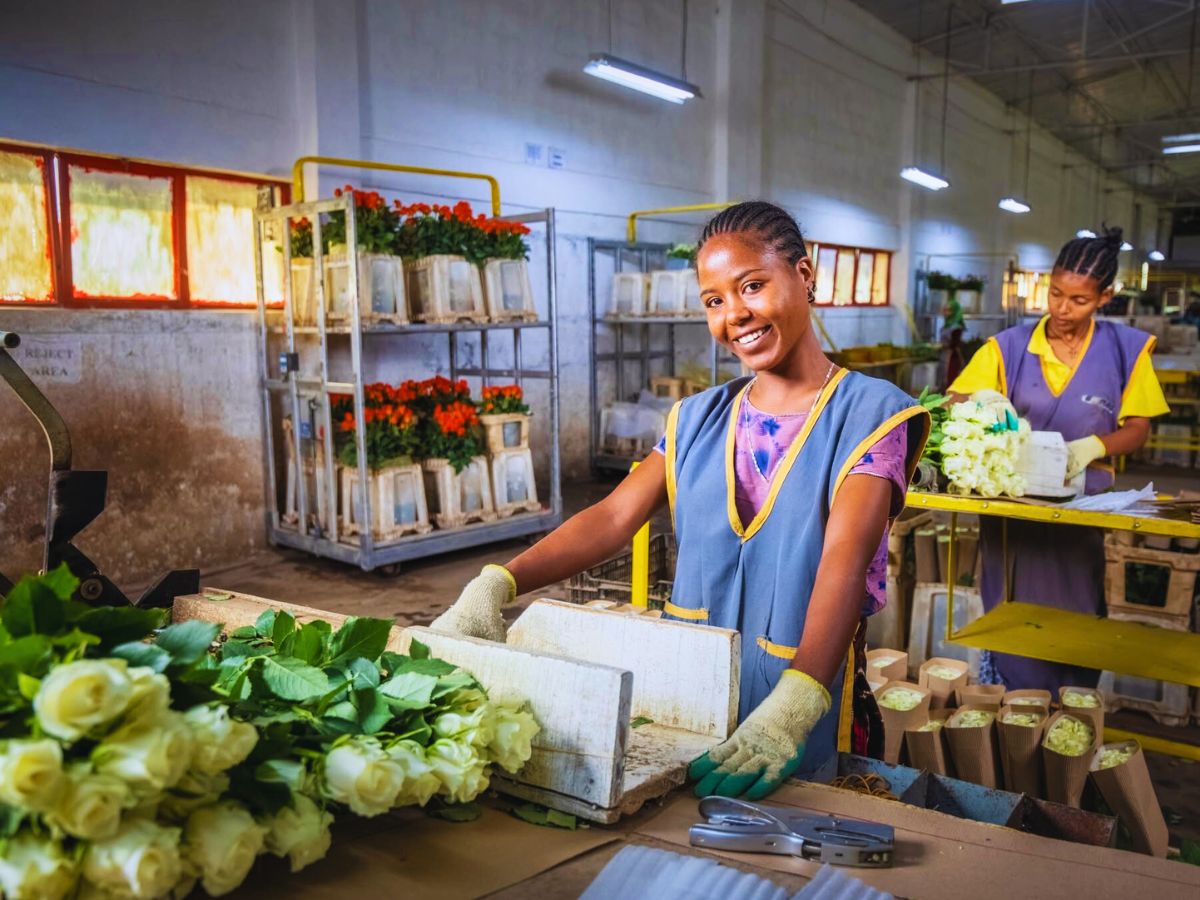
Environmental Sustainability Standards
In addition, Fairtrade certification includes robust environmental criteria that address the industry's ecological challenges. Highly toxic pesticides and genetically modified organisms (GMOs) are forbidden on certified farms, while strict waste management and biodiversity conservation measures are required. Likewise, water conservation is prioritized through reduced water consumption, irrigation systems, and comprehensive wastewater handling protocols.
In this regard, many Fairtrade-certified farms have implemented innovative water management systems, including closed irrigation systems that ensure 100% water reuse through reverse osmosis and multimedia filtration. The ecological benefits also incorporate carbon footprint reduction. Fairtrade flowers generally have a lower carbon footprint, even when factoring in transportation costs. This is due to natural cultivation conditions that significantly eliminate the need for artificial heating and lighting.

Clean Energy and Climate Action
Progressive Fairtrade farms are leading sustainability initiatives that are much more than just basic certification requirements. Projects promoting sustainable and clean energy among Kenyan flower workers use Fairtrade Premium funds to provide financial incentives for clean energy adoption. These initiatives enhance community resilience while encouraging peer learning between flower farms.
Some certified farms have installed comprehensive renewable energy systems, including solar installations that power major operations and anaerobic digester sites for biogas production. These are innovations that reduce carbon emissions by up to 144 tons annually while cutting operational costs.
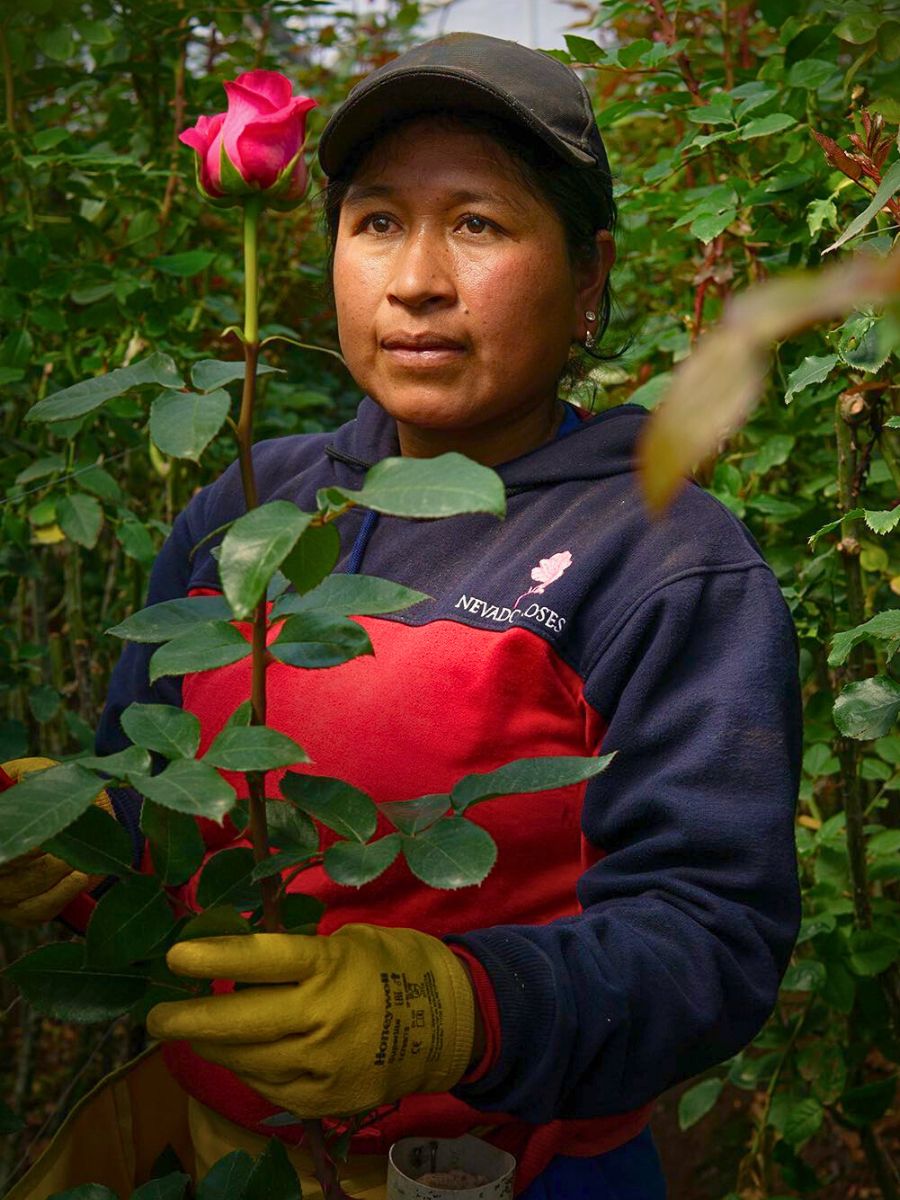
A Rigorous Certification Process and Standards
The Fairtrade certification process for flower farms is comprehensive and rigorous. Producers must comply with both the generic Fairtrade Hired Labor Standard and the sector-specific Flowers and Plants Standard. These standards cover factors from freedom from discrimination to freedom of association, collective bargaining rights, safe working conditions, and occupational health and safety requirements. Annual audits by FLO-CERT ensure ongoing compliance with all standards.
The certification process also includes requirements for worker training in health and safety practices, provision of personal protective equipment, safe chemical spraying protocols, and specified re-entry regulations after pesticide application.
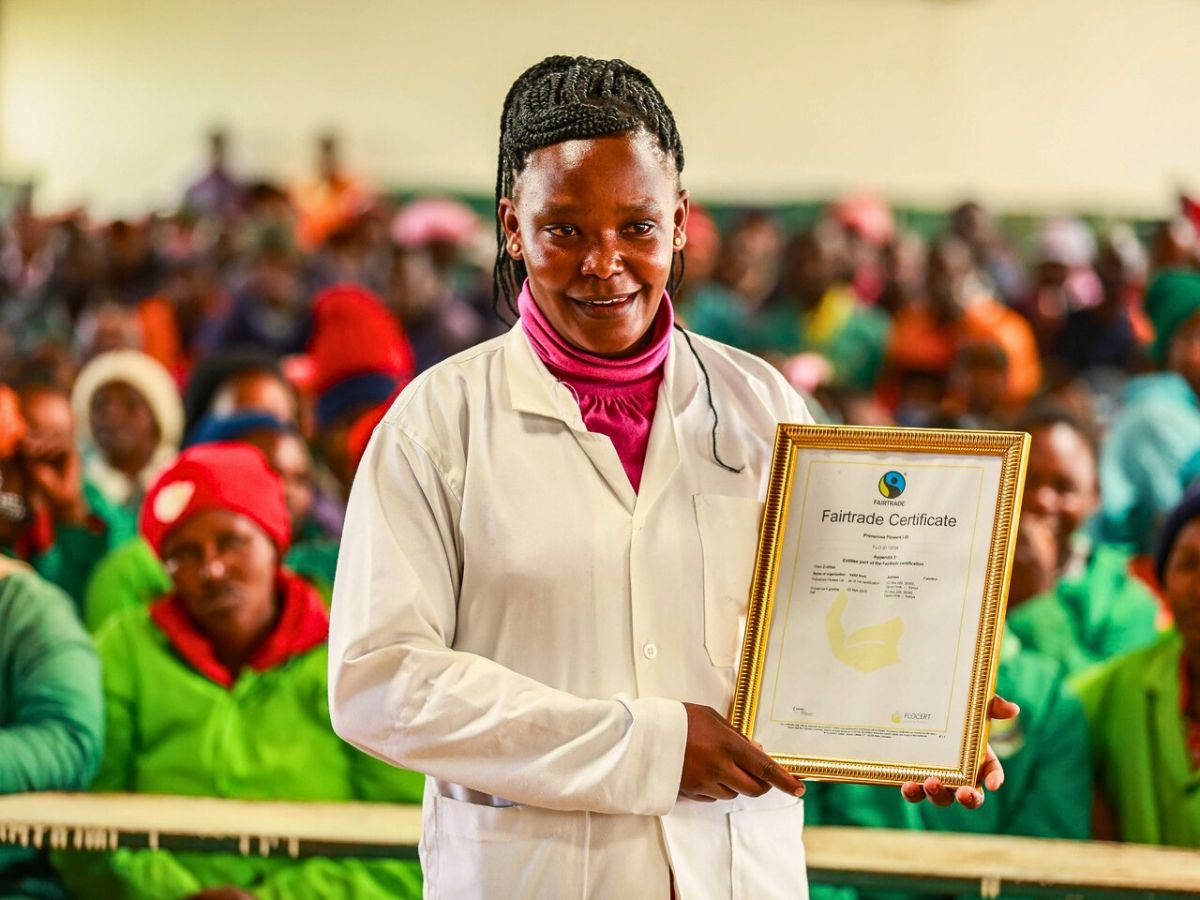
Market Impact and Global Reach
The scale of Fairtrade's impact on the flower industry is substantial. Africa is the biggest producer of Fairtrade flowers globally, producing nearly 5 billion stems between 2019 and 2020, representing an 11.3% growth from the previous period. In 2020, Fairtrade-certified flower farms sold €943.8 million worth of stems, directly employing 70,788 men and women while providing indirect employment to thousands more.
Moreover, the Fairtrade florist scheme, developed in partnership with wholesaler Fleurametz, enables independent florists to source Fairtrade stems and support flower farm workers. This initiative allows for mixed bouquets that combine locally grown flowers with those sourced from Fairtrade-certified growers, addressing both sustainability and market accessibility concerns.
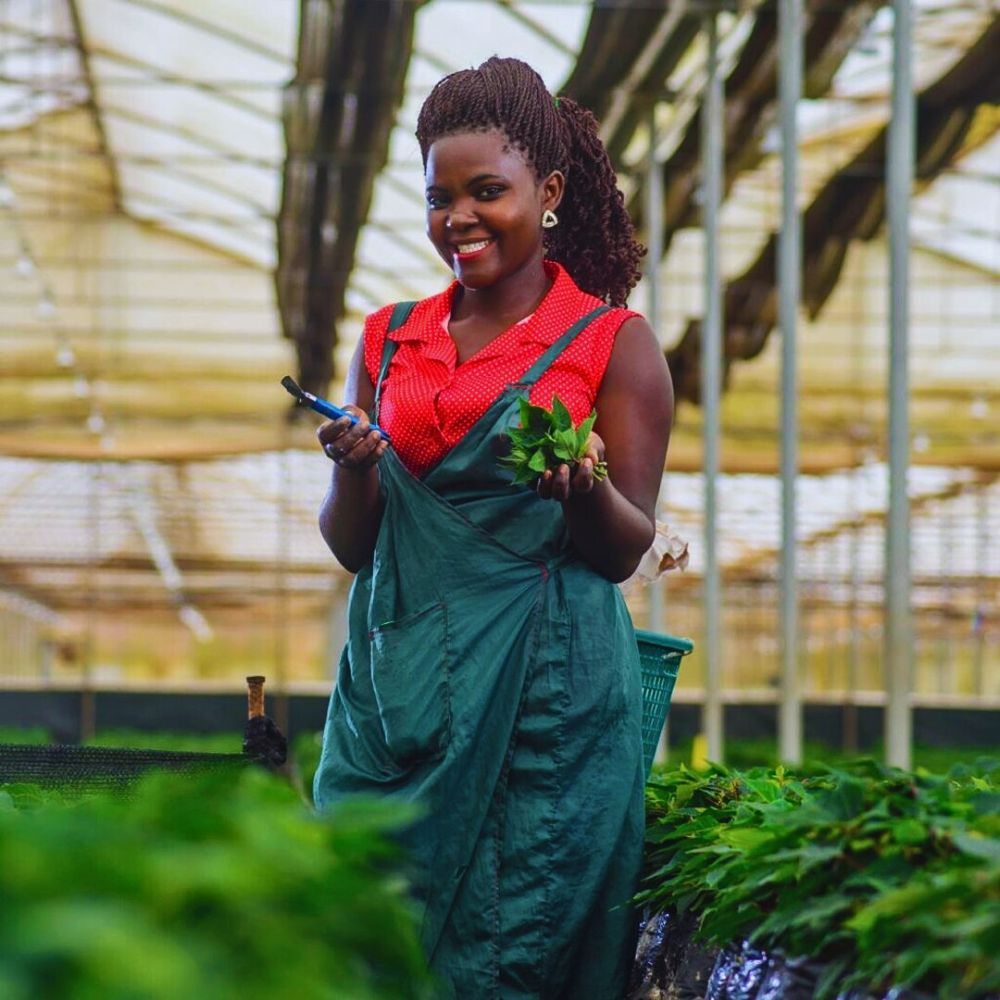
Challenges Notwithstanding, Opportunities Abound
Despite significant progress, challenges remain in achieving a comprehensive transformation of the flower industry. Living wage gaps persist, with current wages still below established living wage benchmarks in some regions. Fairtrade is actively working with supply chain partners to develop strategies to bridge these gaps using tools like the IDH Salary Matrix.
Market access remains another challenge, with relatively low percentages of Fairtrade sales per farm requiring focused efforts to expand market opportunities. The introduction of the Fairtrade Sourced Ingredient model for roses provides greater flexibility for flower companies to incorporate Fairtrade products into their offerings. In comprehensively addressing these challenges that linger, Fairtrade is taking relevant step-by-step measures.
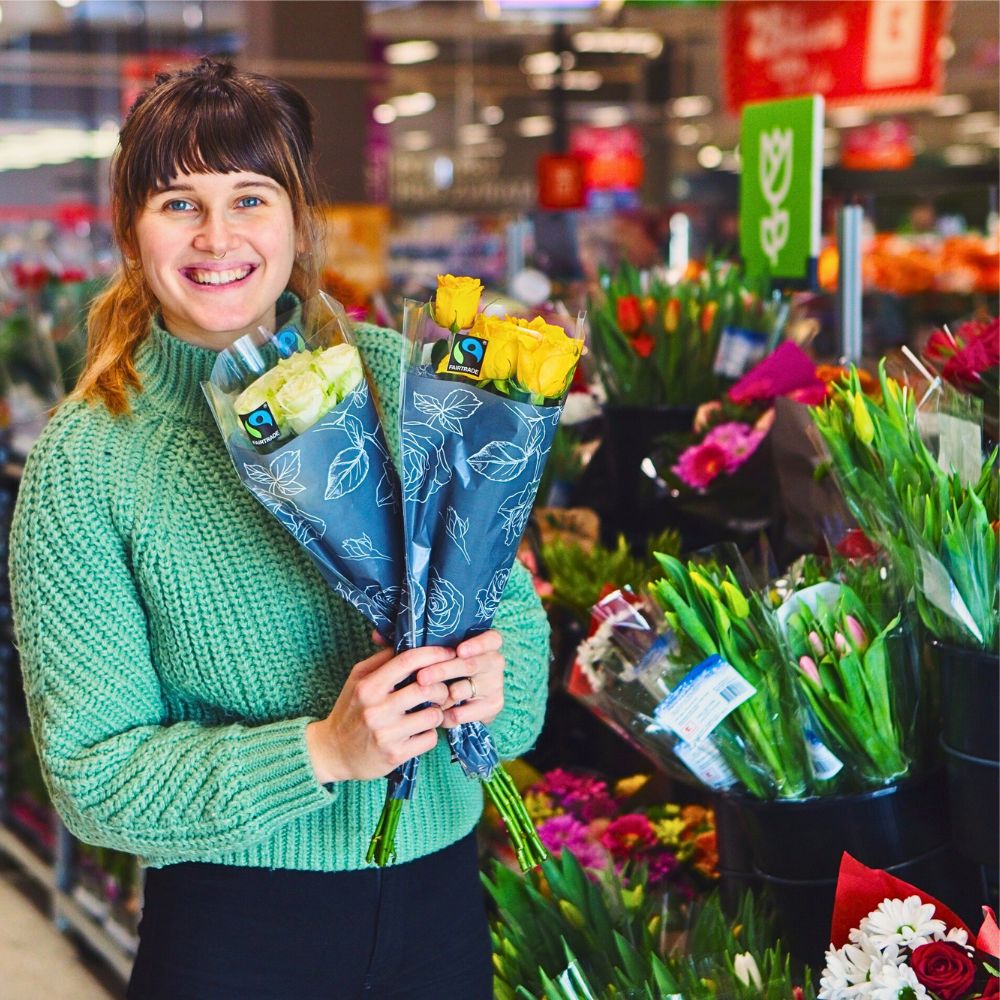
In due course, the flower industry's transformation through Fairtrade certification will show that sustainable, ethical production is not only possible but also economically viable. Prioritizing worker welfare, environmental protection, and community development—through its model that works toward a more equitable and environmentally responsible global flower trade—Fairtrade reimagines an industry free from unfavorable practices, in line with the growing consumer awareness and demand for sustainable products.
Feature image by @fairtradesk, header image by @simbi.roses.

